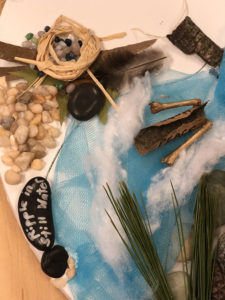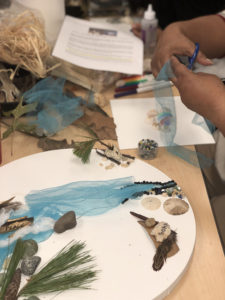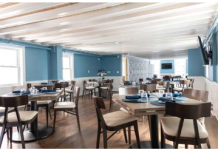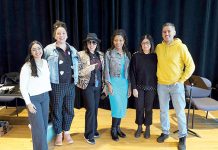Art created by women and children who are survivors of domestic violence, with the guidance of Middletown-based art therapists, will soon be on display at two Brookdale Community College campuses.
The local Amanda’s Easel program, part of a nationally recognized art therapy program, is run by 180 Turning Lives Around, an organization offering a wide range of services to individuals and families affected by domestic and sexual violence.
Westendorf said she is hoping additional organizations, health care facilities and schools will offer space to be used as future venues for the traveling exhibit.

While 180 Turning Lives Around’s headquarters is based in Hazlet, the art program is run at a separate facility in Middletown and at the organization’s Emergency Safe House. The organization keeps both of those locations confidential to protect clients.
The exhibit just closed at the end of November at Monmouth County Library’s Manalapan branch, 125 Symmes Drive, following an October stint at the JBJ Soul Kitchen, 207 Monmouth St., Red Bank. The restaurant was established by rocker Jon Bon Jovi’s foundation to empower those in need to volunteer in exchange for free meals.
The exhibit, with the theme of “Rock and River: Obstacles and Flow,” features 17 pieces, including paintings and collages using a wide variety of media, such as paint, canvas, shells, sand, stone and twigs, said Westendorf. The theme of meeting obstacles and going with the flow “is a metaphor for healing,” she said. “The artwork is by survivors who are telling their stories; each piece has its own story and shows that there is always hope.”

The women and children who create the art are either living in or have lived in homes where they were abused or neglected. For many, creating art through the help of art therapists and social workers may be the only way they’re able to release their pain.
“Trauma can be stored in a part of the brain not accessible through words,” Westendorf said.
“And it works every time,” said Westendorf, who has coordinated the local Amanda’s Easel program for 22 years and has been an art therapist for 35 years. “Those opportunities touch a part of our souls and make how we function so much better.”
The experience of going through an art therapy program also helps children who are acting out or who are withdrawn in the painful aftermath of abuse or neglect.
Amanda’s Easel also uses music therapy and play to engage and help children traumatized either by child abuse or by witnessing one of their parents victimized by domestic violence
“Amanda’s Easel, the nationally recognized creative art therapies program, is designed to create a support system to help both children and their non-offending parents cope with the life changes precipitated by violence and abuse,” according to 180’s website. “The program provides art, play and music therapy that promotes healing by encouraging clients to express and understand their feelings and fears in a safe and nurturing environment, through various creative arts intervention and case management services. Children often don’t know how to describe the overwhelming feelings associated with the witnessing of domestic abuse. Amanda’s Easel gives them the tools so that they can begin healing.”
This article was first published in the Nov. 29 – Dec. 5, 2018 print edition of The Two River Times.














